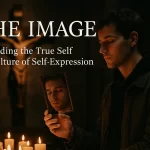Truth Matters, Part 5: A Response to Katherine Maher’s TED Talk
There’s something strange about watching someone stare directly at the truth and walk away from it.
It happened once in a Roman courtroom.
The question was simple, profound, and cynical:
“What is truth?”
Pilate asked it, but he wasn’t seeking an answer. He was deflecting. Truth was standing in front of him in the flesh—Jesus, the incarnate Word—and the governor responded with a shrug and washed his hands.
Two thousand years later, Katherine Maher didn’t shrug exactly—but her TED Talk echoes a similar mood: truth is complex, maybe even dangerous, and certainly not absolute. Better, she suggests, to pursue something more manageable: collaboration, consensus, and “minimum viable truth.”
Across this five-part series, we’ve taken a journey through Maher’s claims and offered a biblical response. From her assertion that “truth might be a distraction,” to her embrace of consensus as the path forward, we’ve followed the threads of relativism, expressive individualism, and postmodern skepticism—all the way to the cultural fragmentation we now live in.
But now, we turn to something deeper: not just how to think about truth, but how to live it.
Because how we speak the truth matters just as much as the truth we speak.
Maher’s Hope: From Disagreement to Common Purpose
At the end of her talk, Maher says something surprisingly hopeful:
“The seeds of our disagreement can actually become the roots of our common purpose.”¹
There’s something beautiful in that. And Christians should resonate with it. Scripture calls us to gentleness, to peace, to respect. We are not called to win shouting matches. We are called to shine like lights in a crooked generation (Philippians 2:15). We’re called to show perfect courtesy toward all people (Titus 3:2).
But here’s the rub: Maher’s foundation isn’t strong enough to hold her hope.
Her vision of common purpose rests on a foundation of negotiated truth—a truth that shifts with community consensus. And while she’s right to prize humility, collaboration, and respect, her underlying framework risks making unity the goal, and truth the casualty.
Respectful Dialogue ≠ Relativism
We agree: dialogue should be respectful. But respect doesn’t mean relativism.
As Christians, we don’t claim to own the truth—but we do belong to the One who is the Truth (John 14:6). We believe in a truth that isn’t constructed by conversation but revealed by God. And while we don’t always see clearly, Scripture gives us clarity:
“Your word is truth.” (John 17:17)
That’s why we don’t just aim for polite coexistence. We aim for truthful witness—truth shared with love, truth wrapped in humility, truth anchored in Christ.
As Nancy Pearcey has written, the fact/value split in modern culture treats religious or moral claims as personal preferences, not public truth.² But the gospel is not private comfort. It’s public truth. It’s reality.
Civility and Conviction: Holding the Tension
Throughout this series, we’ve emphasized a central theme: Truth and love are not enemies. They are covenant partners. If we speak truth without love, we’re just noise (1 Corinthians 13:1). If we love without truth, we’re enabling a lie.
C.S. Lewis captured this paradox well:
“Love is something more stern and splendid than mere kindness.”³
True love confronts. True truth consoles. Jesus was full of grace and truth. We must be too.
Francis Schaeffer warned that truth without compassion becomes monstrous.⁴ And yet, compassion that won’t speak truth isn’t love—it’s cowardice.
So we hold the tension. We resist compromise and combativeness. We engage our culture not to dominate, but to redeem—as ambassadors, not agitators.
Practical Principles: Truth in Action
So what does it look like to “speak the truth in love”? Here’s the blueprint we’ve built from Scripture:
- Speak truth with love (Ephesians 4:15) – Not as a weapon, but as a healing word. Aim for building, not scoring points.
- Be gentle and respectful (1 Peter 3:15) – Honor the person, even as you challenge the idea.
- Correct with patience (2 Timothy 2:24–25) – Truth needs no panic. Let the Holy Spirit do the heavy lifting.
- Use discernment (Proverbs 26:4–5) – Not every argument deserves a rebuttal. Wisdom knows when to speak, when to walk.
- Start with empathy – Listen well. Understand before you respond. Build bridges, not barricades.
- Affirm what’s true – Even in disagreement, acknowledge what’s right. Truth shows up in surprising places.
- Proclaim the gospel as love – Don’t just win a moral point. Offer the better story of God’s redemption.
- Stay humble and teachable – We don’t have all the answers. But we know the One who does.
- Pray and trust the Spirit – You’re not alone. The results are God’s responsibility, not yours.
Cultural Apologetics: When Truth Becomes Beautiful
This is more than debate prep. It’s a vision for cultural apologetics—defending truth not just with logic, but with love, creativity, and community.
Truth becomes compelling when it’s embodied.
The early church wasn’t persuasive because it shouted loudest. It was persuasive because it lived differently. The same is true today. A church that holds fast to truth while extending grace is a prophetic witness to a fractured world.
We won’t always be understood. Jesus wasn’t. But if we reflect Him well—if we speak truth with tears in our eyes and hope in our voice—then we show the world not just a better argument, but a better way.
Conclusion: Truth That Sets Free
Katherine Maher is right about one thing: disagreement doesn’t have to divide. But the only disagreements that lead to unity are the ones committed to truth.
As we wrap up this series, here’s the heartbeat of it all:
- We affirm civility, but not relativism.
- We embrace love, but not at truth’s expense.
- We pursue peace, but only on truth’s terms.
Because real peace comes through the gospel. Real unity comes through Christ. And real love tells the truth—even when it costs.
So let’s be that kind of people: people who speak truth like Jesus did—with nail-scarred hands and resurrected power.
Let’s go forward, not shouting down a world that disagrees with us, but inviting them in—into the truth that saves, restores, and sets captives free.
Because in the end, it’s not about winning arguments.
It’s about witnessing to the One who is full of grace and truth.
That’s not just our strategy.
That’s our Savior.








